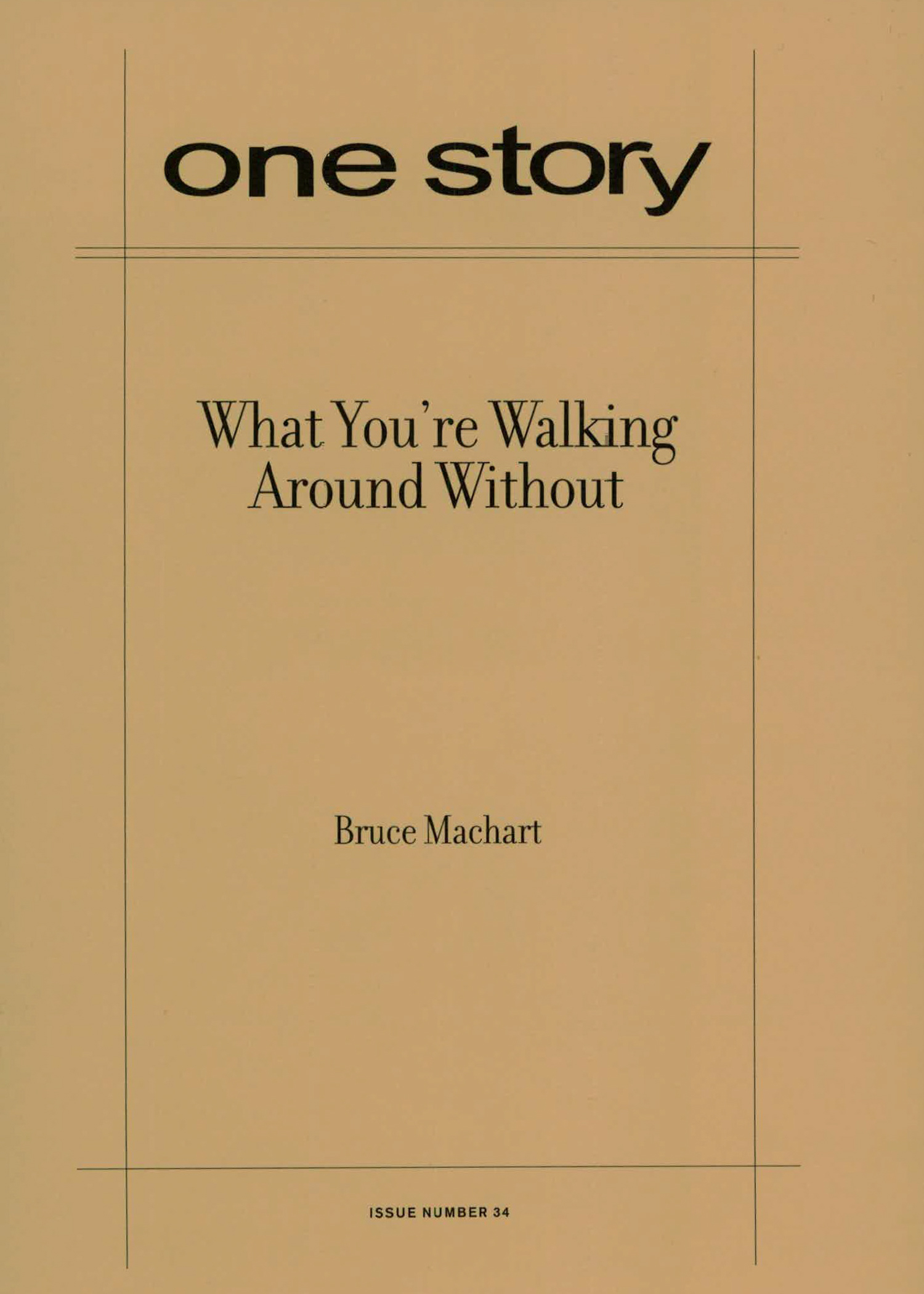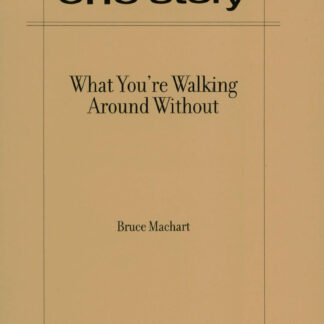
What You’re Walking Around Without
$2.50
33 in stock
Excerpt
If for the last ten years you’ve lived within 100 miles of Houston along the southwest corridor of Highway 59, and in that time you’ve had a breast removed, or both, or you’ve had a hysterectomy or a lumpectomy or a swollen purple mole dug from your skin, then this is true: Whatever your surgeon cut out of you spent some time with Dean Covin in his car.
They put the breasts in quart-sized plastic containers with snap-on lids, the kind of cheap Tupperware Dean hopes they don’t reuse. A uterus warrants a half-gallon bucket. Ovaries and tumors bob and float in pint-sized containers filled with gray liquid preservative. On a busy day—say, a Friday, like today—between his two insulated totes, Dean will have bits and pieces of forty people sloshing around on the back seat by the time he makes it from Victoria to Deer Park, where he rolls slow into the neighborhood, pulling into the driveway of the house his injuries have purchased for him.
Bruce Machart
Bruce Machart’s short fiction has appeared or will shortly in Five Points, Zoetrope All-Story, Glimmer Train, and Story, among others. He has been nominated for the Pushcart Prize and received an honorable mention in the 2002 Best American Short Stories. He has also been awarded fellowships from the Ohio Arts Council and The Ohio State University.
Q&A by Hannah Tinti
- HT: Where did the idea for this story come from?
- BM: This one had a rather lengthy gestation period, which, unfortunately, isn’t uncommon for me. When I was still in graduate school, a medical courier story called “Driving the Heart” by Jason Brown was getting a lot of attention, and while I think Brown is a fantastic writer, the story didn’t really come off for me. It relied too heavily, I thought, on a freak encounter with physical danger, one that wasn’t really a function of character. At the time I was working for extra cash driving a medical courier route, and so I suppose the initial impulse behind the story was simply to “get it right” in a way that satisfied me. Of course, it wasn’t until I got beyond all the arrogance implicit in the bass-ackwards motivation of trying to “improve” on someone else’s story (and began, instead, to focus on my own characters) that the story came together.
- HT: What was the most challenging aspect of writing this story?
- BM: I once asked Lee K. Abbott why he chose to write about UFOs in his fantastic story, “The Talk Talked Between Worms.” He said, “I didn’t. That story’s about characters, not UFOs.” Then I bought him a drink, and he allowed that it was in part the challenge that drew him into the story. He wanted to write a realistic story in which such a literally otherworldly element was made believable, real, even inevitable given the world of the story. That’s how I felt about writing a scene in which there is a physical manifestation of God. Writing that moment in the story was, hands down, the most perplexing, most humbling experience of my writing life thus far.
- HT: Dean Covin’s jobs are so perfectly described. Where did you get the details about working on a rig and being a courier for body parts?
- BM: Thank you; that’s wonderfully kind. You know, I wish like hell I could say that this is just the result of good, thorough research, but it’s not. I’d like to say that, though, not only because I enjoy that kind of research (I once spent three days on an antique tractor chat-room site so I could freshen up on my knowledge of old farm implements), but because all the attention given to the bullshit jobs that writers do while learning how to write has become a little too pat, almost clichéd. But, honestly, I have to say that I once did in fact drive urine and blood and biopsy samples around in my car for beer money, and I once pulled a hitch offshore, and I tried, even then, to pay attention.
- HT: John Dalton brings to mind those off-putting characters in Flannery O’Connor’s work that bring forth revelations. What do you feel is his purpose in the story?
- BM: At first I really just couldn’t shake the image of a boy poking a pencil at a floating, amputated breast. I don’t know what that says about me, and I don’t much care, because what happened in the end was that John Dalton became a redeeming force in the story. He’s a Christ figure, I think. All contemporary Christ figures, I’ve decided, really should wear Houston Astros caps.
- HT: Do you think Dean Covin’s relationship with God is changed by what happens?
- BM: What I know to be true is that Dean’s relationship with himself has changed, and I don’t believe it would be possible for a fundamental change in a man’s notions of things such as masculinity and self worth and human “wholeness” to occur without in some way affecting him spiritually. Unless the man in question had no recognizable spiritual life to begin with, that is, which is hardly the case for Dean.
- HT: Why did you choose to use the second person in parts of this story, especially at the beginning and the end?
- BM: I’m fascinated by the possibilities of point-of-view, and I’ve been particularly curious about second person for the last few years. It struck me a while back that most writers use second person the way we all use it colloquially, as a defense mechanism for a first-person speaker who, for emotional or psychological reasons, is distancing himself from his own story. Lorrie Moore, Pam Houston, and David Foster Wallace have all done this kind of second person beautifully. But I’ve begun to see other interesting possibilities. There’s no reason, for instance, that a second-person narrator can’t (or shouldn’t) be more akin to a third-person narrator than to a first-person narrator. The mode is just so full of opportunities. But this isn’t, of course, a second-person narrator. It’s a third person story, one in which second person language is used periodically by the narrator, and I wanted a narrator powerful enough to do that, an omnipotent—rather than omniscient—third person, if you will. I wanted a narrator with the power to implicate the reader, and to do so explicitly without sounding too didactic.
- HT: What other writers have influenced your work?
- BM: When I want to learn something about point of view, I read Russell Banks. When I want to remind myself that character and place are inseparable, I read Eudora Welty. When I want to cry fat happy tears, I read Ron Carlson. When I want to cry all eleven other kinds of tears, I read Richard Yates.
- HT: How long did it take you to complete this story?
- BM: From the first sentence to the final revision, not counting all the gestation time mentioned above, probably a little less than a year.
- HT: What is the best bit of advice about writing you have ever received?
- BM: This isn’t really advice, but it’s awfully damn smart, so I’ll use it anyway. In her recent book of essays, Joyce Carol Oates says that “the novel is the affliction for which only the novel is the cure.”
- HT: What are you working on now?
- BM: I’m currently afflicted.
